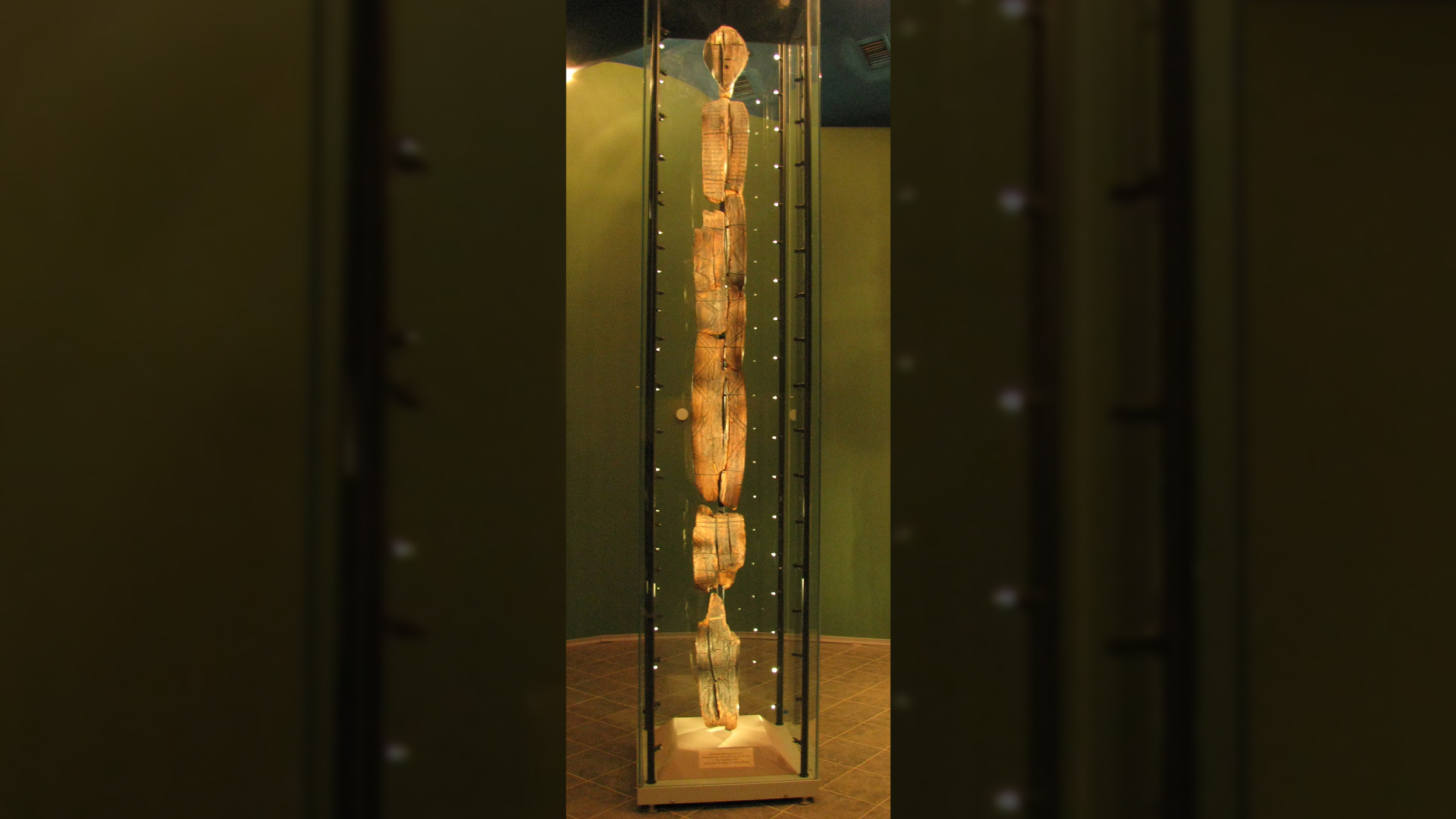
Name: Shigir Idol
What it is: The world's oldest known wooden sculpture
Where it was found: At the bottom of a peat bog in Russia's Ural Mountains in 1894
When it was made: The towering sculpture was carved 12,100 years ago from the trunk of a larch (Larix) tree, making it more than twice as old as the Egyptian pyramids.
What it tells us about the past: This wood carving would have towered 17.4 feet (5.3 meters) tall when it was first crafted. It depicts a human figure and features an array of geometric motifs etched into the statue, including zigzag patterns, as well as human faces and hands. For years, archaeologists have argued over the age of the artifact. However, the latest analysis determined that the piece was created by hunter-gatherers in the Pleistocene epoch (2.6 million to 11,700 years ago), according to a study in the journal Quaternary International.
Related: World's 1st carved horse: The 35,000-year-old ivory figurine from Vogelherd cave

Many of the markings are similar to those found chiseled into monumental stone ruins at Göbekli Tepe, a Neolithic archaeological site in Turkey, according to Science magazine — a common artistic occurrence that began as the last ice age was ending. However, the intended purpose of the wooden piece remains a mystery, with some researchers speculating that the figure may have been used during ancient rituals, or perhaps that the carved faces may reflect "encoded mythologies" whose vertical placement could represent a hierarchy or sequence of events, according to a study in the journal Antiquity.
Researchers have found a much older wooden structure — a 476,000-year-old wooden construction in Zambia — but unlike this ancient discovery, the Shigir Idol is clearly a carved monument, rather than tree trunks with notches.







